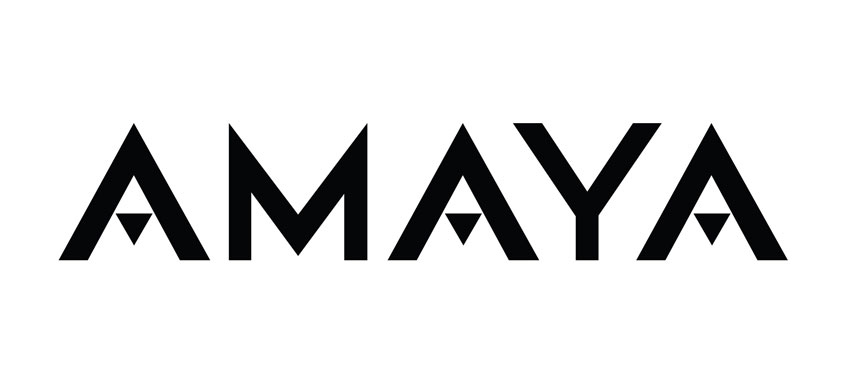There has been a lot of talk on the blogs and message boards about the Amaya effect on PokerStars. But what effect is PokerStars having on Amaya?
There is always something faintly comical about a company announcing “record revenues” in its quarterly financial statement. After all, unless you have been going backwards for quite some time, it does not take much to increase revenue to a “record” level. 888 has been doing it every quarter since it emerged from the doldrums a couple of years ago. And now Amaya is following suit.
Its “record” revenue would seem to be a case of stating the obvious considering that this time last year its Q3 revenue was just CA$38.5m ($34.1m). Since then it has spent $4.9bn acquiring a whole new company. So its record results can be taken with a pinch of salt.
However, there were some interesting tidbits revealed as the Rational Group business becomes more and more transparent to prying eyes. Take, for example, the geographic spread of the Rational business. Some fairly rough and ready calculations (taking away last year’s Amaya revenues from the whole) reveal that Europe accounts for about 65 per cent of Rational’s business, the Americas account for roughly 24 per cent and the Rest of the World (ie. Asia) accounts for about 11 per cent.
In very simple terms, that means that at least a third of Rational’s revenues come from grey markets. That’s a fair whack considering the current debate revolving around the UK’s new point of consumption regime and its request for more information on any market accounting for more than 3 per cent of revenues. It is also interesting considering the company’s withdrawal from about 30 grey markets at the beginning of October.
Sources at Amaya confirmed that this was a move aimed at bringing Rational Group in line with Amaya’s policies on these markets. North American listed companies tend to be conservative when it comes to the likes of North Korea and Cuba.
It is unlikely that PokerStars will lose many players from Afghanistan, Bangladesh, Iraq or Rwanda. However, withdrawing from well-populated countries such as Egypt, Malaysia, Nigeria and Saudi Arabia is an unwelcome change for a company whose mission has always been to promote poker across the globe.
 Raking the changes
Raking the changes
If the changes to market coverage were clearly ordered by the Amaya hierarchy, there have been numerous other changes that have been in Rational’s plans for some time. Changes to rake and foreign exchange rules have got the blogs and boards in a terrible fluster with many worrying that an Amaya-owned PokerStars will strangle the golden goose with attempts to wring every last cent from the Stars money-making machine.
The concern is that a Scheinbergless PokerStars no longer has the desire to create the world’s best poker site and is only interested in making money. Sometimes it is tempting to dismiss the blogs and boards as the industry’s worst enemy such is the noise and hullabaloo that emanates from them.
Leaving aside the fact that the industry has many “worst enemies”, the blogs and boards serve a good purpose. Sure, they are often filled with ill-informed speculation, gossip, innuendo and some utter fabricated nonsense but they also show us the industry has an engaged and very passionate community. The community can help to keep the industry on the right path when it diverges too far from its customers’ best interests.
The most successful operators – companies such as PokerStars – have used the boards to their advantage throughout their existence. That said, the speculation can be tiring.
Rational Group director of communications summarised these changes as “bankroll management” in a blog explaining the changes. The new world order of regulated markets has increased costs and some of that cost has to be shared by players. Clearly they are not going to be happy about that. These changes affect players who play poker for a living more than most. While these guys are a small percentage of the overall player pool they are highly audible via the blogs and boards and will shout loudly when their livelihood is affected.
Poker executives note that these changes will also have been undertaken with an eye on how they affect the poker room ecology. PokerStars has been tweaking its rules, regulations and practices to acquire more recreational players and it will continue to do so. Most sites make changes all the time to see how the business is affected. Most of these changes go through unobserved by even the most sensitive players. Some changes are reversed after not having the desired effect. It is all part of managing the ecology. It is a fascinating form of science and Stars has been very adept at balancing it thus far. It is unlikely that Amaya will mess with the executive decisions taken on this subject in the Isle of Man.
Which way for B2B?
While the players have got a keen eye on PokerStars, it is also fascinating to watch the changing shape of Amaya Gaming following its bold acquisition. One of the most eye-catching statements from Amaya’s quarterly update was its simple introduction: “Amaya’s primary business is its business-to-consumer operation, Rational Group.”
Clearly that is the case from a financial point of view but it is also becoming the case from an operational point of view. The most obvious sign of things to come is the offloading of bwin’s old poker engine Ongame. Poor old Ongame – once so loved – it has become one of the gaming industry’s least-loved assets, thrown this way and that in a game of corporate pass-the-parcel, that nobody wants to win.
However, in falling into NYX’s hands for an “undisclosed amount” (yes, they really are giving away the asset that bwin bought for €450m in 2005), Ongame might finally have found a good home. Sweden-based NYX teams up with Sweden-based Ongame, bringing it back to its roots and also back towards the Swedish operators that make up the majority of the NYX clientele.
NYX and parimutuel specialists Sportech teamed up to form SNG Interactive, which announced a deal to deliver an online gaming site to New Jersey’s Resorts Casino earlier in the year. Of course, Rational Group also has a deal with Resorts, which it was hoping to launch in November.
If PokerStars has had a tough time getting back into the US, Ultimate Gaming has endured a nightmare despite being the first company to be licensed by regulators in Nevada. Parent company Station Casinos has now closed down its online operations in New Jersey and Nevada.
The New Jersey figures have also shown that online gambling is not the pot of gold at the end of the rainbow. The slow start to the regulated US markets also suggests that US society is unlikely to be dragged to hell in a handbasket as the likes of Sheldon Adelson suggest.
SNG Interactive will need a poker platform if it is to make a real go of B2B in the US but even then it will struggle to compete with Rational/Amaya when it eventually does return. While the likes of bwin.party, GameAccount Network and 888 have made significant forays into US B2B, the newly-regulated online gaming market is proving a tough gig.
Amaya is in the process of transforming PokerStars and Full Tilt into its primary B2B vehicles. Ongame was the first non-performing business to suffer from that process. Cadillac Jack will be the next asset offloaded if the “strategic review” highlighted in the Q3 report comes to fruition. While many are asking what Amaya is doing to PokerStars, it is starting to become very clear what PokerStars is doing to Amaya.
sah@gamingintelligence.com
